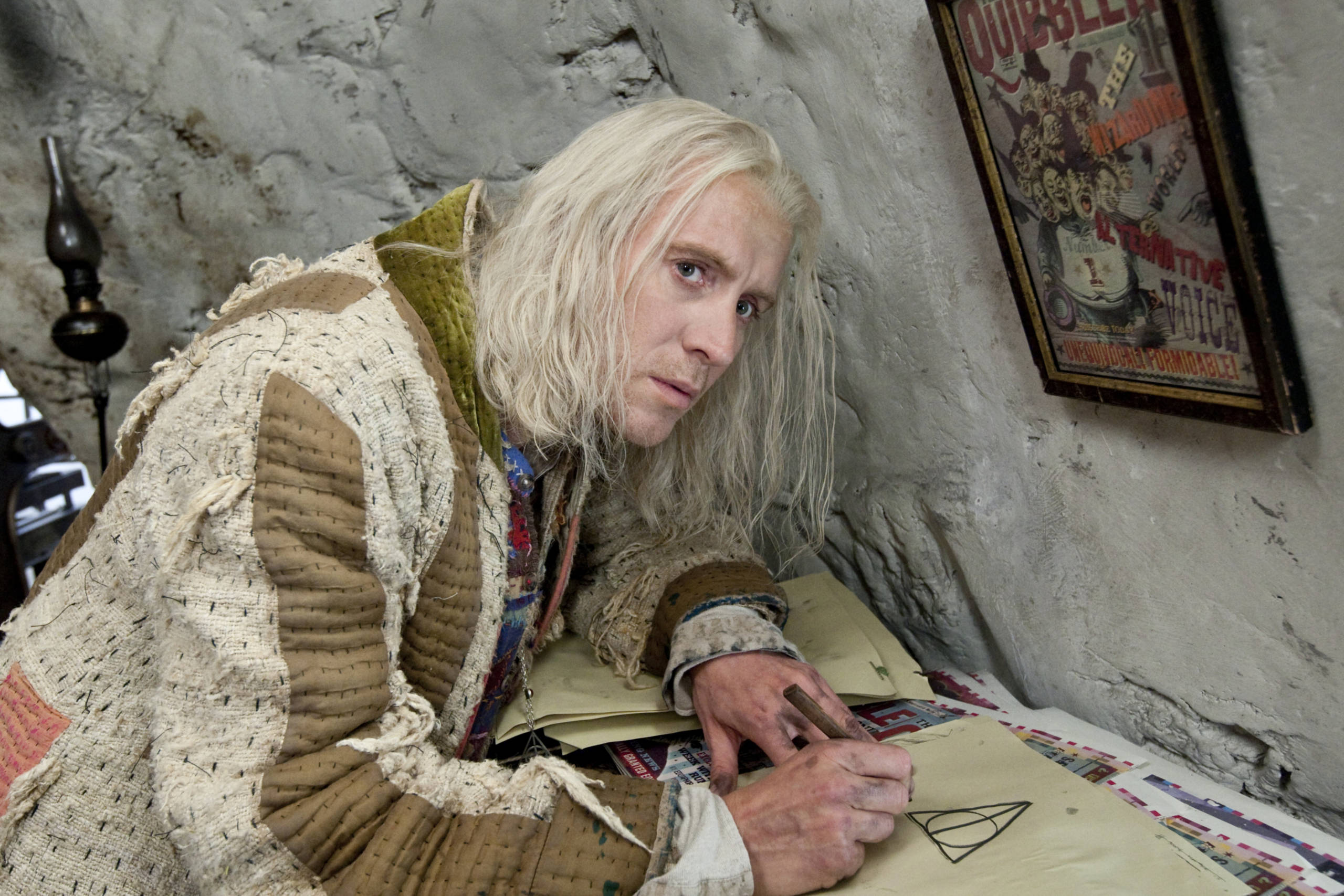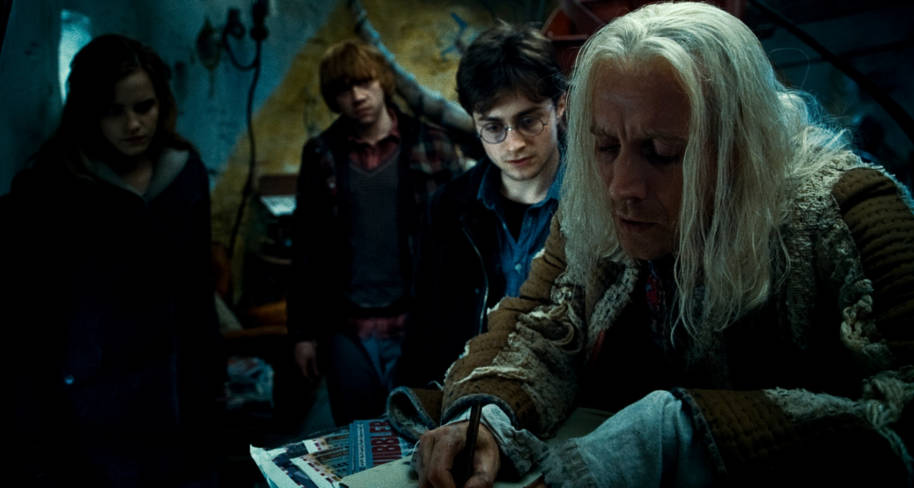
The evasion of death and Lord Voldemort
The foundation of ‘The Tale of the Three Brothers’ is the idea that death is something that can be evaded. The three men do cheat Death, but only in a temporary way, as they are pursued through their lives, with Death hoping to claim what he was due.
Their situation mirrors Voldemort, who spent his lifetime hoping to achieve immortality and reap the benefits. Ultimately, as with the three brothers, death caught up with Voldemort and his quest to become notorious and powerful through gaining mastery over it was over.
When Harry, Ron and Hermione were told ‘The Tale of the Three Brothers’ by Xenophilius Lovegood, it was during a time when Voldemort’s mortality was a hot topic. The three were hunting for Horcruxes to eventually destroy Voldemort, so you’d imagine this story of three brothers attempting to cheat death and failing would be rather encouraging for them.
‘I, who have gone further than anybody along the path that leads to immortality. You know my goal – to conquer death.’
Harry Potter and the Goblet of Fire
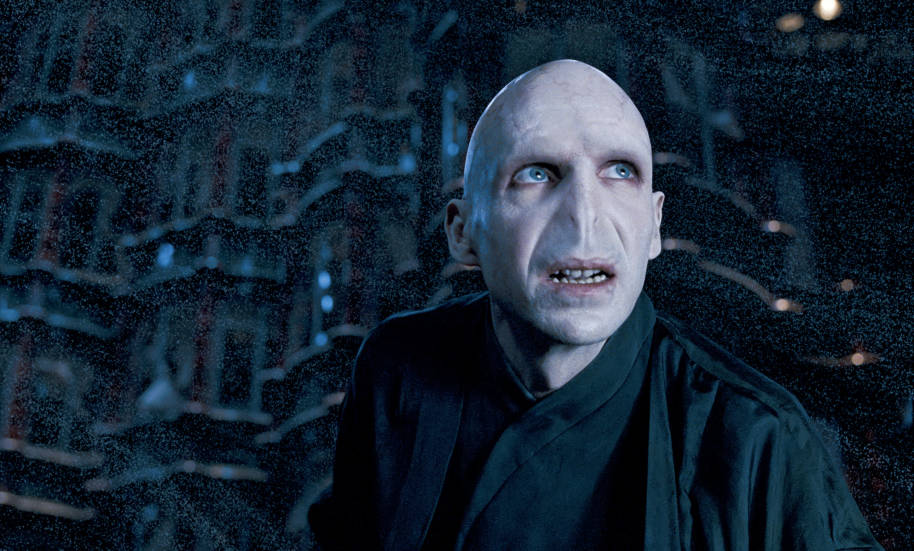
Be humble in your desires
Harry was a character who, because of his decidedly humble origins, started off with humility in buckets. He was a sympathetic boy who cared for those also downtrodden, and was seldom cocky.
This, of course, changed as the books went on – Harry became more stubborn, more hardened, though he never veered close to being like his father. Still, he was less humble than he used to be and ‘The Tale of the Three Brothers’ was an important warning for him in many ways.
The only brother not to die prematurely was the brother who just requested sanctuary from Death’s gaze, so that Death would not be able to pursue him. He ultimately lived a happy life and died peacefully – in contrast to his brothers, who suffered horrible fates.
It was a theme that the story shared with the series in general. Voldemort was the opposite of humble and his grand desires were what corrupted him and eventually killed him. We learnt that it’s important to be ethical in your decisions, and to not allow your ambition to overcome you.
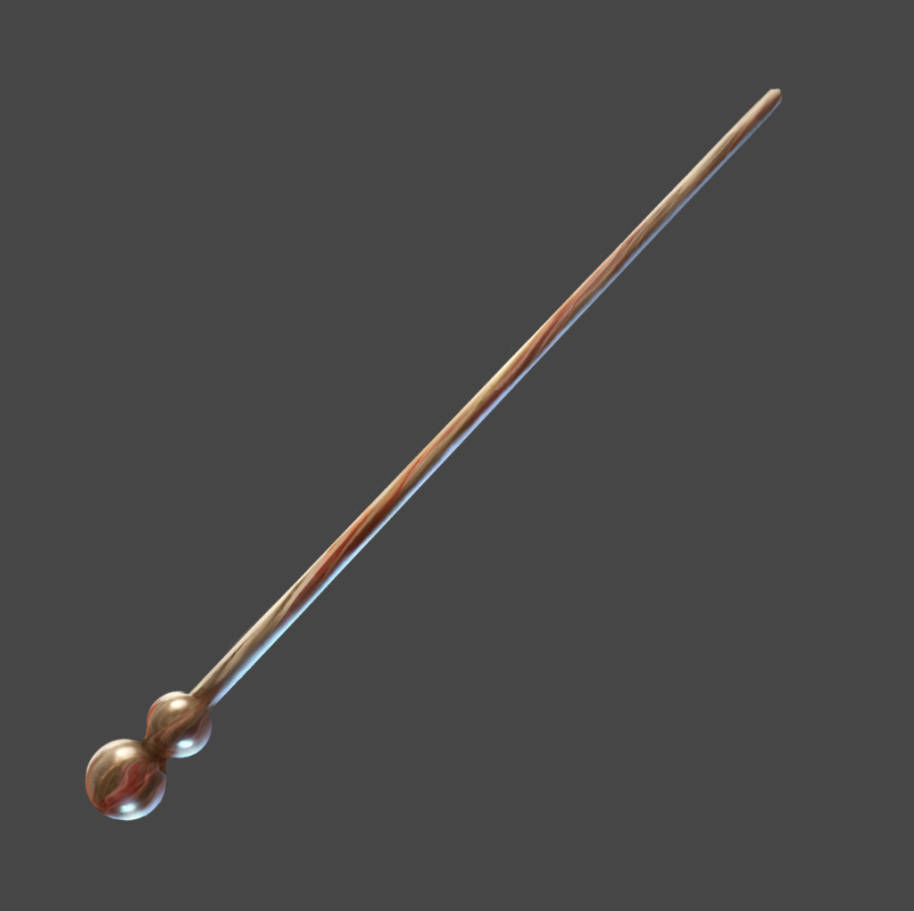
Harry, despite becoming obsessed with the Deathly Hallows, learnt this lesson in the end too, parting ways with the Elder Wand despite its immense power. Much like the brother with the invisibility cloak, the very cloak that would be passed down in Harry’s family, Harry learnt to accept death rather than go against it.
But though Death searched for the third brother for many years, he was never able to find him. It was only when he had attained a great age that the youngest brother finally took off the Cloak of Invisibility and gave it to his son. And then he greeted Death as an old friend, and went with him gladly, and, equals, they departed this life.
The Tales of Beedle the Bard
Magic can’t solve grief
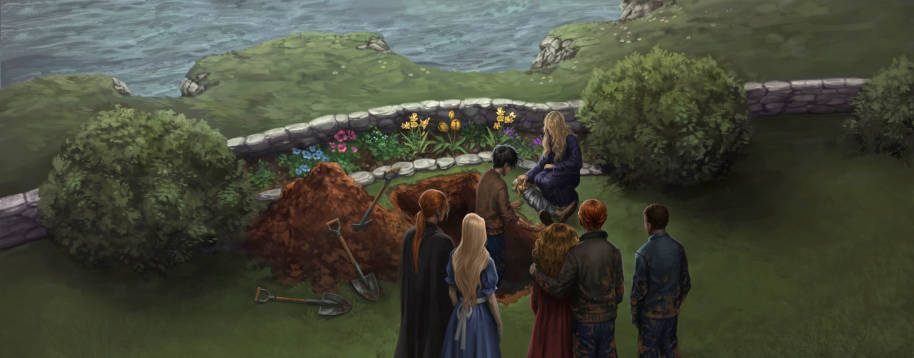
An important message to be learnt from the three brothers’ story, and one especially important to someone like Harry, was that magic can’t solve grief. The second brother requested the Resurrection Stone as his gift from Death in order to bring back to life a long-lost love, but she was a shadow of her former self and he drove himself to suicide.
To his amazement and his delight, the figure of the girl he had once hoped to marry before her untimely death appeared at once before him. Yet she was silent and cold, separated from him as though by a veil. Though she had returned to the mortal world, she did not truly belong there and suffered.
The Tales of Beedle the Bard
The idea that magic can’t fix your sorrow was something that appeared countless times in the series. Horcruxes have been portrayed as a poor substitute for life – you can’t avoid your own mortality in any meaningful way no matter how hard you try. Likewise, the Philosopher’s Stone was another hollow attempt at life extension. Even a Cheering Charm will wear off eventually.
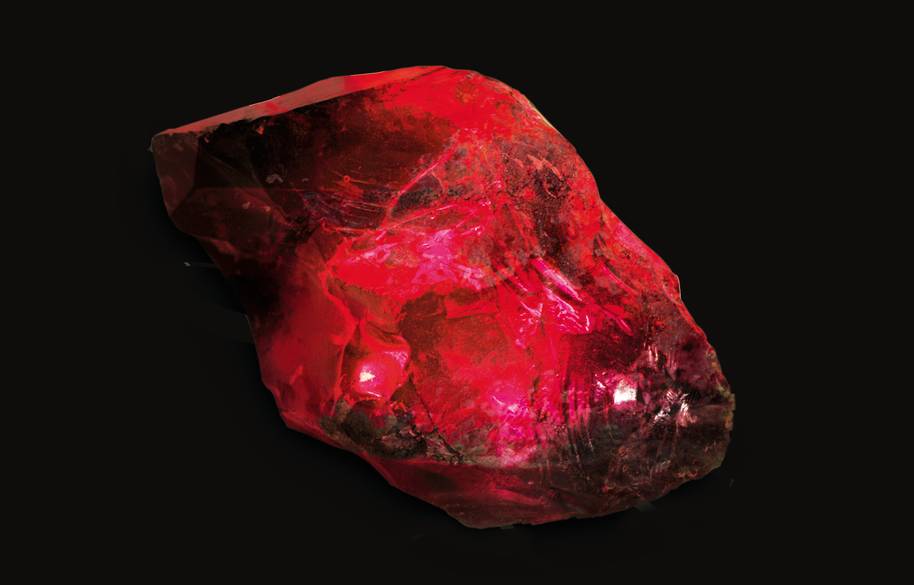
Ghosts may continue to exist in the mortal world after death, but once again life as a ghost is, as Nearly Headless Nick described it, a ‘feeble imitation of life’. ‘The Tale of the Three Brothers’ showed us that magic can’t solve the death of a loved one, and it can’t cure grief either.
Arrogance can lead to your doom
It’s not difficult to see the correlation between the fate of the brother who was granted the Elder Wand and that of Voldemort. Though Harry did not, of course, know this at the time, it’s an accurate comparison as the brother who possessed the Elder Wand was corrupted by arrogance and lust for power, and this ultimately got him killed.
In a very similar way, Voldemort’s own arrogance and belief that he was unconquerable was what got him killed. He still managed to underestimate his opposition, and failed in becoming the greatest wizard of all time.

